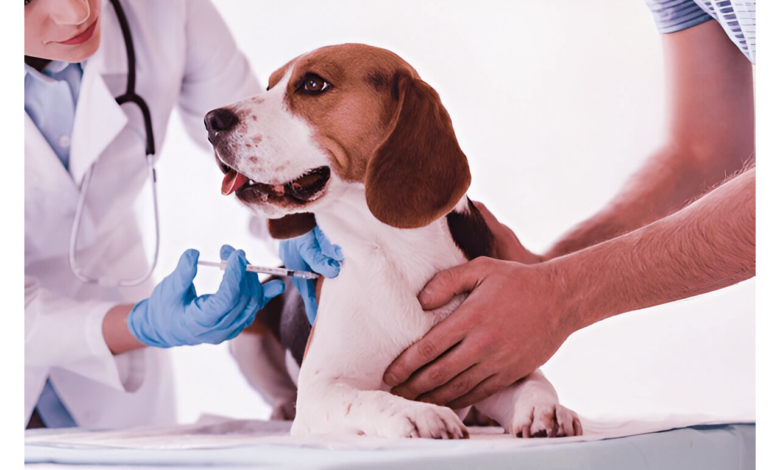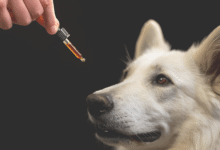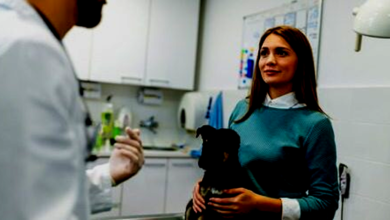
Essential Vaccinations for Pets in the UK: What’s Required?
vaccinations for pets in the UK play a crucial role in safeguarding animal health and preventing the spread of contagious diseases.
Essential vaccinations for pets in the UK play a crucial role in safeguarding animal health and preventing the spread of contagious diseases. Whether you own a dog, cat, or rabbit, ensuring that they receive the necessary vaccinations is a fundamental aspect of responsible pet ownership. These vaccinations not only protect pets from life-threatening illnesses but also contribute to public health by minimizing the risk of zoonotic diseases that can spread to humans. Veterinary experts and animal welfare organizations stress the importance of vaccination schedules to ensure long-term immunity and overall well-being for pets.
Vaccination requirements in the UK vary based on pet type, age, and lifestyle, with core and non-core vaccines tailored to specific risks. While some vaccinations are mandatory under UK pet travel and welfare regulations, others are highly recommended for disease prevention. In this article, we will explore the essential vaccines required for dogs, cats, and rabbits in the UK, discuss their significance, the diseases they prevent, and provide guidance on vaccination schedules and legal considerations. By understanding the importance of pet vaccinations, owners can make informed decisions that prioritize their pet’s health and longevity.
Core Vaccinations for Dogs in the UK
Dogs in the UK require core vaccinations to protect against life-threatening illnesses. Core vaccines are those considered essential for all dogs, regardless of their environment or lifestyle, due to the severity and widespread nature of the diseases they prevent.
Canine parvovirus is one of the most serious diseases affecting dogs. It spreads through direct contact with infected dogs or contaminated objects and attacks the gastrointestinal system, causing severe vomiting, diarrhea, and dehydration. This disease is particularly fatal for puppies and unvaccinated dogs, making early and regular vaccinations crucial.
Canine distemper is another highly contagious virus that affects a dog’s respiratory, gastrointestinal, and nervous systems. Symptoms range from fever and nasal discharge to neurological issues such as seizures. Once contracted, there is no cure, and treatment is only supportive, which is why vaccination is the best defense against this deadly disease.
Canine hepatitis, caused by the canine adenovirus, primarily affects the liver, kidneys, and eyes. Symptoms include fever, abdominal pain, and lethargy. In severe cases, it can lead to organ failure and death. Vaccination provides lifelong immunity against this disease, making it essential for all dogs.
Leptospirosis is a bacterial infection that spreads through contaminated water and animal urine. It can lead to severe kidney and liver damage in dogs and is also a zoonotic disease, meaning humans can contract it from infected pets. Because leptospirosis is prevalent in the UK, especially in wet environments, vaccination is a vital preventive measure.
Rabies vaccination is not required for dogs living in the UK but is mandatory for those traveling abroad under the Pet Travel Scheme. Although the UK is rabies-free, vaccination ensures compliance with international travel regulations and prevents the risk of outbreaks.
Non-Core Vaccinations for Dogs
Some vaccinations are recommended based on a dog’s lifestyle and specific exposure risks. Kennel cough, caused by Bordetella bronchiseptica and parainfluenza virus, is highly contagious and spreads in kennels, dog daycare centers, and training classes. The vaccine helps prevent severe respiratory infections that can be particularly harmful to young and elderly dogs.
Canine coronavirus, though not as deadly as parvovirus, causes gastrointestinal distress in dogs. Puppies are more vulnerable, and vaccination can help reduce the severity of the illness.
Lyme disease is spread by ticks and can cause joint pain, fever, and neurological complications in dogs. It is more common in dogs that spend time in wooded or grassy areas where ticks thrive. Vaccination, along with regular tick prevention, is advised for dogs at risk.
Core Vaccinations for Cats in the UK
Cats require vaccinations to protect against common and potentially deadly diseases. Feline panleukopenia, also known as feline parvovirus, is a life-threatening illness that affects a cat’s immune and digestive system. Symptoms include vomiting, diarrhea, and fever. The virus is highly contagious and can be fatal, making vaccination essential for all cats.
Feline herpesvirus and calicivirus, commonly referred to as cat flu, are responsible for respiratory infections in cats. These viruses cause sneezing, nasal discharge, and conjunctivitis. Although not always fatal, they can lead to chronic respiratory issues, especially in young and immunocompromised cats. Vaccination helps reduce the severity of symptoms and prevents widespread infection.
Rabies vaccination is required for cats traveling outside the UK under the Pet Travel Scheme. While rabies is not present in the UK, vaccination is mandatory for international pet travel to prevent potential outbreaks.
Non-Core Vaccinations for Cats
For cats with specific lifestyles or increased risk factors, additional vaccines may be necessary. Feline leukemia virus (FeLV) is particularly dangerous for outdoor cats, as it is spread through saliva, bites, and close contact with infected cats. FeLV weakens the immune system, leading to anemia, infections, and cancer. Vaccination is recommended for outdoor and multi-cat households.
Chlamydophila felis causes bacterial conjunctivitis in cats, leading to eye infections and respiratory distress. It is common in crowded environments, such as catteries, and vaccination is advised in multi-cat homes.
Essential Vaccinations for Rabbits
Rabbits also require vaccinations to protect them from severe diseases. Myxomatosis is a deadly viral disease spread by fleas and mosquitoes. It causes swelling, respiratory distress, and a high mortality rate. Vaccination is the only effective way to protect rabbits from this devastating disease.
Rabbit Viral Haemorrhagic Disease (RVHD) exists in two strains, RVHD-1 and RVHD-2. Both cause sudden death, internal bleeding, and severe organ failure. Since these diseases spread rapidly and have no cure, annual vaccinations are essential for all rabbits.
Read More: 8 Tips to Keep Pets Safe During this Winter
Conclusion
Pet vaccinations are essential for preventing life-threatening diseases and ensuring the well-being of pets and their owners. Regular vaccinations not only protect animals from severe illnesses but also help prevent the spread of zoonotic diseases, which can pose risks to humans. By keeping up with recommended vaccination schedules, pet owners can significantly reduce the chances of disease outbreaks and provide their pets with a healthier and longer life.
Legal and travel considerations further highlight the importance of vaccinations. Compliance with pet vaccination requirements ensures smooth travel and access to boarding facilities, pet events, and dog daycare centers. By staying informed and proactive about their pet’s health, owners can contribute to a safer and healthier pet community in the UK.
FAQs
- Are pet vaccinations legally required in the UK?
While core vaccinations are not legally required for pets living in the UK, rabies vaccination is mandatory for international travel under the Pet Travel Scheme.
2. At what age should puppies and kittens receive their first vaccinations? Puppies and kittens should receive their first vaccinations at around six to eight weeks old, with booster shots administered at regular intervals.
3. How often do pets need booster vaccinations? Most core vaccines require annual or three-yearly booster shots, depending on the type of vaccine and veterinary recommendations.
4. Do indoor cats need vaccinations? Yes, indoor cats should still receive core vaccinations, as some diseases can spread through human contact, contaminated objects, or open windows.
5. Can pets have side effects from vaccinations? Mild side effects such as soreness, lethargy, or slight fever may occur, but severe reactions are rare. It’s always best to consult a vet if concerns arise.







